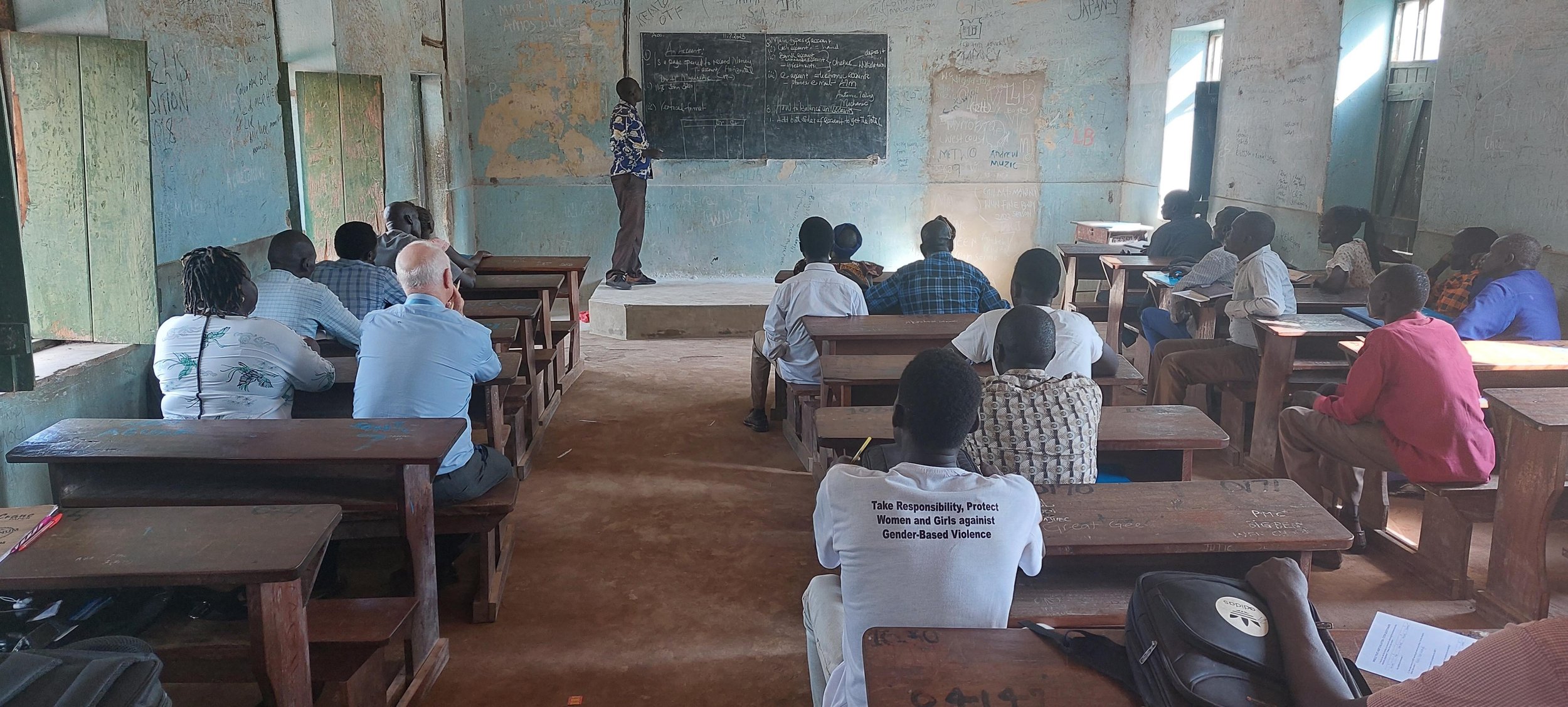Evaluating the Accelerated Secondary Education Programme in South Sudan
South Sudan faces significant challenges in its education sector. A major concern is the lack of sufficient and qualified teachers. Out of over 60,000 teachers in the system, only 19% possess the required diploma teacher status for teaching in primary schools and lower secondary. Years of conflict, displacement, poverty, and limited access have resulted in thousands of schoolchildren missing out on secondary education or dropping out prematurely. The country estimates a need for an additional 60,000 teachers to achieve a balanced pupil-teacher ratio.
To address these challenges, Windle Trust International, in collaboration with the Ministry of General Education and Instruction (MoGEI), introduced the Accelerated Secondary Education Programme (ASEP) in 2019. This initiative aims to provide adult teachers and other individuals who have completed primary education but couldn't continue to secondary level, an opportunity to complete their secondary education in an accelerated manner.
ASEP classes are taught by existing secondary school teachers and are typically conducted on weekday afternoons and Saturday mornings. The program is designed to serve unqualified teachers currently teaching in primary schools, with a particular emphasis on vulnerable women, especially mothers. By March 2020, 51 ASEP Centres were established across South Sudan. However, the COVID-19 pandemic led to the closure of these centers, with only 13 reopening in 2022.
Evaluating the success of Accelerated Secondary Education
WTI commissioned Richard Arden, OBE to conduct an independent evaluation of the Accelerated Secondary Education Programme in 2023, producing the report “Evaluation of the Accelerated Secondary Education Programme in South Sudan”. The evaluation was conducted through analysis of key reports and documentation, as well as through questionnaires and interviews with tutors and students across the country. Highlights of its findings were:
Positive Feedback: ASEP learners have rated the program highly, with special appreciation directed towards the Intensive English and Study Skills courses. This feedback indicates the program's effectiveness in addressing key educational gaps.
Enhanced Teaching Abilities: Many learners have reported significant improvements in their teaching skills, particularly in English grammar. This not only benefits the learners but also the students they teach, elevating the overall quality of education.
Aspirations to Further Education: The program has instilled a strong desire among ASEP learners to continue their education journey. Many express the ambition to become fully qualified teachers, indicating the program's success in motivating and empowering its participants.
Breakthrough in Gender Equity: ASEP has seen remarkable participation from female teachers. This is not just a testament to the program's inclusivity but also marks a significant breakthrough in promoting gender equity in the education sector of South Sudan.
What recommendations are there for ASEP?
Amongst the positive findings, the report also made several key recommendations for future Accelerated Secondary Education Programmes in South Sudan:
Refresher Training for Tutors: Periodic refresher training courses are essential to ensure that ASEP tutors are updated with the latest teaching methodologies and can effectively address the unique needs of adult learners.
Enhanced Support for Female Participants: Given the high participation of female teachers, it's crucial to provide additional support mechanisms. This includes childcare facilities, flexible class timings, and gender-sensitive training modules to ensure their consistent participation and success.
Expansion and Scalability: The demand for ASEP underscores the need for its expansion. More centers should be established, especially in remote areas, to make the program accessible to a larger population. Additionally, leveraging technology can aid in reaching a wider audience and providing consistent education delivery.
Stakeholder Engagement: Engage more actively with local communities, education boards, and other stakeholders to gather feedback, understand ground-level challenges, and tailor the program accordingly.
While South Sudan's education sector faces significant challenges, initiatives like ASEP offer a beacon of hope. With continued support, improvements, and expansion, there's potential to transform the educational landscape of the country, one teacher at a time.
Interested in receiving Windle Trust International news and Expert Views straight to your inbox? Sign up to receive a quarterly newsletter and learn more about our programmes, work and impact.
ASEP is implemented as part of the GESS programme which receives funding through UK aid from the UK Government, the Government of Canada through Global Affairs Canada, the U.S. Agency for International Development (USAID), the European Union and the Swedish International Development Cooperation Agency (Sida).
The Ministry of General Education and Instruction (MoGEI) supports the GESS programme, which is managed by implementing partners who provide technical advice. These implementing partners include Cambridge Education/Mott MacDonald as the consortium lead, BBC Media Action, Montrose, Leonard Cheshire and Windle Trust International.

